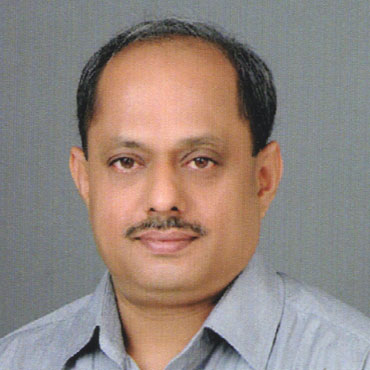
Prof. Karuankara. N
CARER, Mangalore University
Bio-data:
Prof. Karuankara. N, PhD, is working in the Centre for Advanced Research in Environmental Radioactivity (CARER), Mangalore University. His research interests are - low level environmental radioactivity monitoring, environmental impact assessment studies around the nuclear power stations, studies to generate baseline database for the proposed sites, radon and thoron measurements and mitigation, instrumentation, Carbon-14 and Tritium measurements, etc. Prof. Karunakara has been working in this field for many years at the Mangalore University and he is responsible for the establishment of CARER as a National Facility. He has authored about 250 research publications in journals and conferences and has ongoing research collaboration with leading scientific institutions of India and abroad.
Abstract:
Title: Centre for Advanced Research in Environmental Radioactivity (CARER) - Activities, Capabilities, and Opportunities for Collaborative Research
The Centre for Advanced Research in Environmental Radioactivity (CARER) has been established by the Mangalore University through the financial support from the Board of Research in Nuclear Sciences (BRNS), Department of Atomic Energy, Govt. of India, and technical support from the Bhabha Atomic Research Centre (BARC). The centre is engaged in frontline research on radioecology and environmental radioactivity in collaboration with BRNS, BARC, Indira Gandhi Centre for Atomic Research (IGCAR), and Nuclear Power Corporation of India Ltd. (NPCIL), and many international laboratories. The mandates of the centre are:
- To conduct advanced research studies in environmental radioactivity, radiation protection, and radioecology of national importance,
- To collaborate with other institutions and evolve regional coordinated research projects on radioecology and radiation protection, and ensure generation of quality data from all project partners,
- To extend advanced facilities to researchers from other institutions of India,
- To generate trained human resources in areas of low level radioactivity measurements and radiation protection through frequent training programmes and vacation courses, and
- To help the industries of the southern region for testing of commodities for radioactivity.
The centre has state-of-the-art facilities for low level radioactivity measurements as under:
- Liquid scintillation spectrometry,
- Carbon-14 and Tritium laboratory,
- Alpha spectrometry laboratory,
- Gamma spectrometry laboratory,
- Radon laboratory,
- Sample processing laboratory and laboratory, and
- Laboratory for simulation studies on deposition velocity, deposition rate, and mass interception factors of radionuclides /stable elements.
The centre is currently involved in research on standardization of techniques for 14C and 3H measurements in environmental matrices and evaluation of population doses in the vicinity of the PHWR power plant, studies on transfer factors and transfer coefficients for radioactive and non- radioactive elements in the environment regions, baseline and impact assessment studies around proposed facilities and mining regions, development of new techniques for radon/thoron measurements and mitigation, and applications of radionuclides as tracers and chronometer. This talk presents the highlights of the centre, details of the important studies undertaken by the centre on radiation measurements and radioecology.
